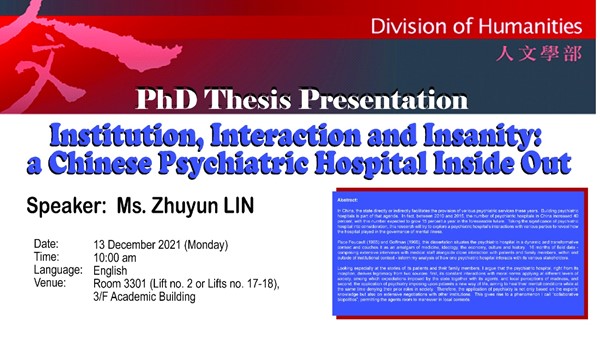Abstract:
In China, the state directly or indirectly facilitates the provision of various psychiatric services these years. Building psychiatric hospitals is part of that agenda. In fact, between 2010 and 2015, the number of psychiatric hospitals in China increased 40 percent, with this number expected to grow 15 percent a year in the foreseeable future. Taking the significance of psychiatric hospital into consideration, this research will try to explore a psychiatric hospital’s interactions with various parties to reveal how the hospital played in the governance of mental illness.
Pace Foucault (1965) and Goffman (1968), this dissertation situates the psychiatric hospital in a dynamic and transformative context and couches it as an amalgam of medicine, ideology, the economy, culture and history. 16 months of field data – comprising extensive interviews with medical staff alongside close interaction with patients and family members, within and outside of the institutional context – inform my analysis of how one psychiatric hospital interacts with its various stakeholders.
Looking especially at the stories of its patients and their family members, I argue that the psychiatric hospital, right from its inception, derives legitimacy from two sources: first, its constant interactions with moral norms applying at different levels of society, among which expectations imposed by the state together with its agents, and local perceptions of madness, and second, the application of psychiatry imposing upon patients a new way of life, aiming to heal their mental conditions while at the same time denying their prior roles in society. Therefore, the application of psychiatry is not only based on the experts’ knowledge but also on extensive negotiations with other institutions. This gives rise to a phenomenon I call “collaborative biopolitics”, permitting the agents room to maneuver in local contexts.
https://engage.ust.hk/event/7627249
huma@ust.hk
